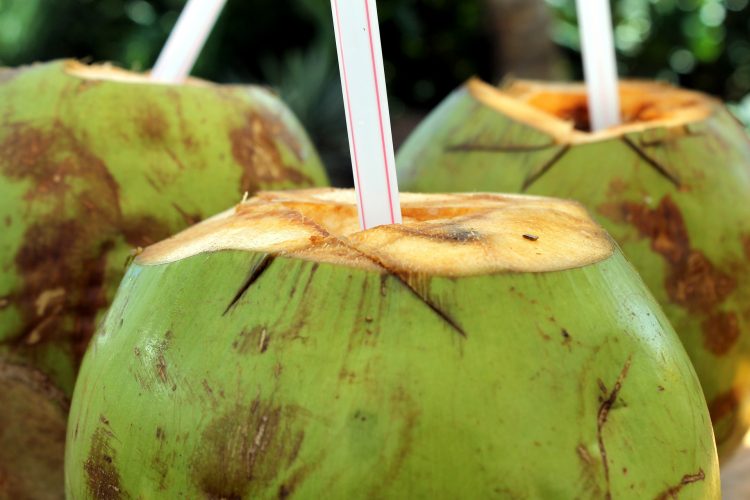Coconut water is the clear liquid found inside the hollow of a coconut. It is not to be confused with coconut milk or cream, which is a liquid puree of the coconut meat itself that contains fats. Coconut water is extracted from young, green coconuts, when the proportion of water to meat is highest.
Coconut water is commonly consumed in Central and South America, the Pacific Islands, and other tropical regions. Fresh coconut water is served directly from the fruit by cracking a small hole on top for the insertion of a straw. In the last decade, coconut water has caught on strongly in the US and can now be purchased at most supermarkets.
- Coconut water has a small amount of natural sugars and some varieties may have added fruit juice or other added sugars.
- Coconut water is loaded with potassium, and also has nutrients such as calcium, magnesium and phosphorus.
Many brands of coconut water contain claims that they are ‘all-natural’ energy drinks and provide health benefits such as alkaline balance and kidney cleansing. However, unsweetened and original flavored coconut water have fewer carbohydrates and less sodium than most sports drinks. So, for vigorous, long exercise lasting longer than an hour, coconut water may not be the best choice for muscle recovery and rehydration.
Coconut water can serve as a good alternative to highly sugar sweetened beverages like soda and sweetened teas. But, as always, water remains a great option for everyday hydration!
Sidebar: Did You Know? Asia supplies 90% of the world’s coconuts, with the largest producers being Indonesia and the Philippines.


